Unit 3 Could you please clean your room? Section A (3a-3c) 教学课件
文档属性
| 名称 | Unit 3 Could you please clean your room? Section A (3a-3c) 教学课件 | 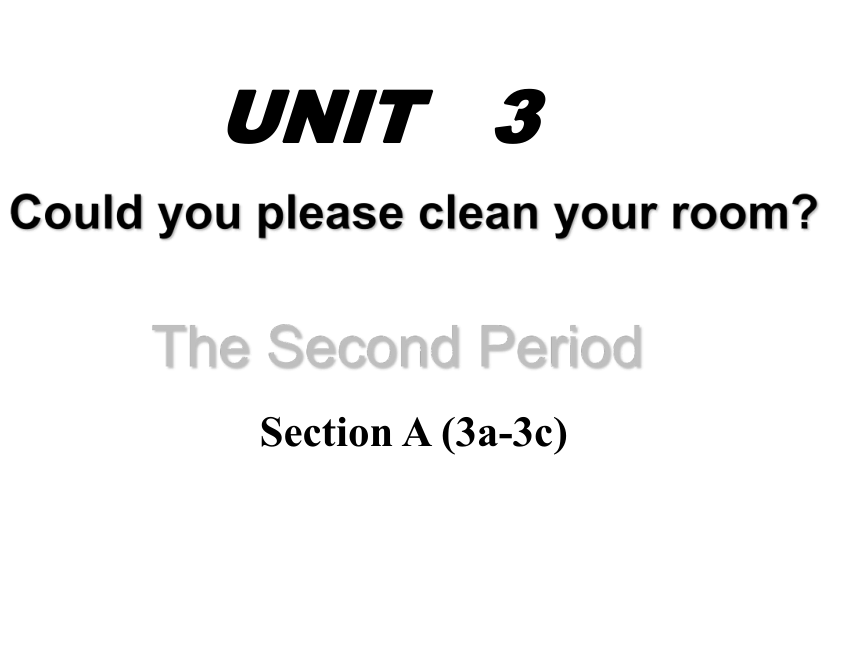 | |
| 格式 | zip | ||
| 文件大小 | 551.8KB | ||
| 资源类型 | 教案 | ||
| 版本资源 | 人教新目标(Go for it)版 | ||
| 科目 | 英语 | ||
| 更新时间 | 2015-03-28 09:10:47 | ||
图片预览

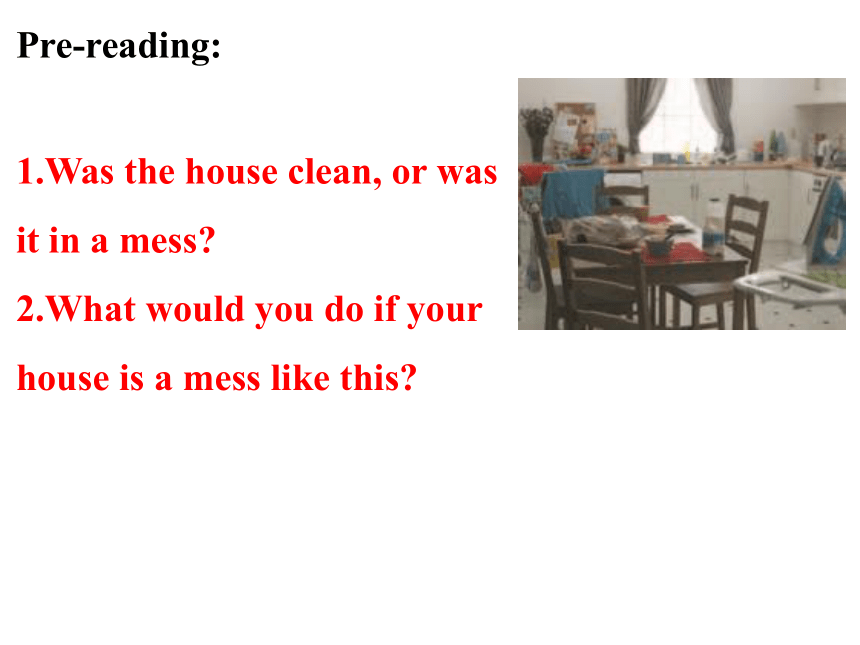
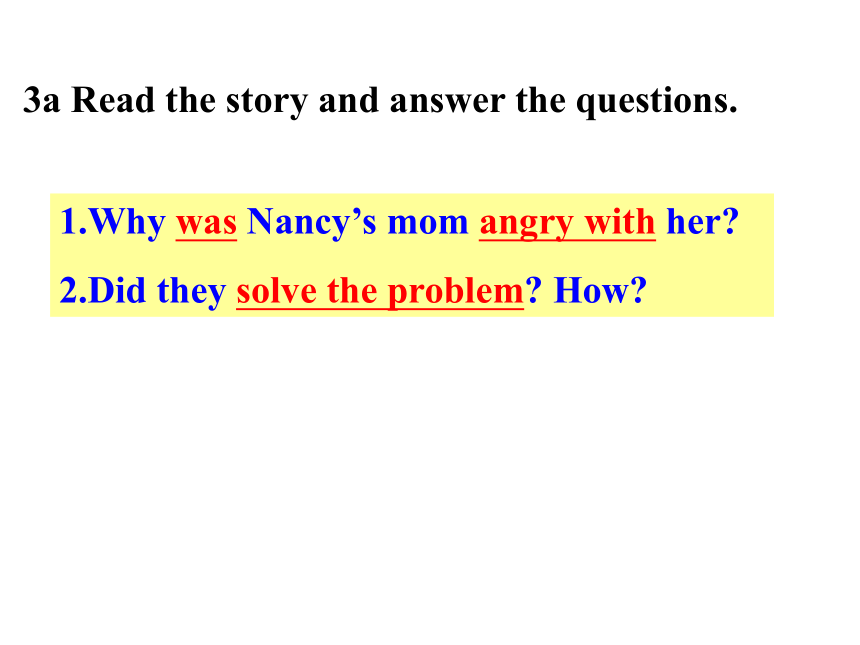
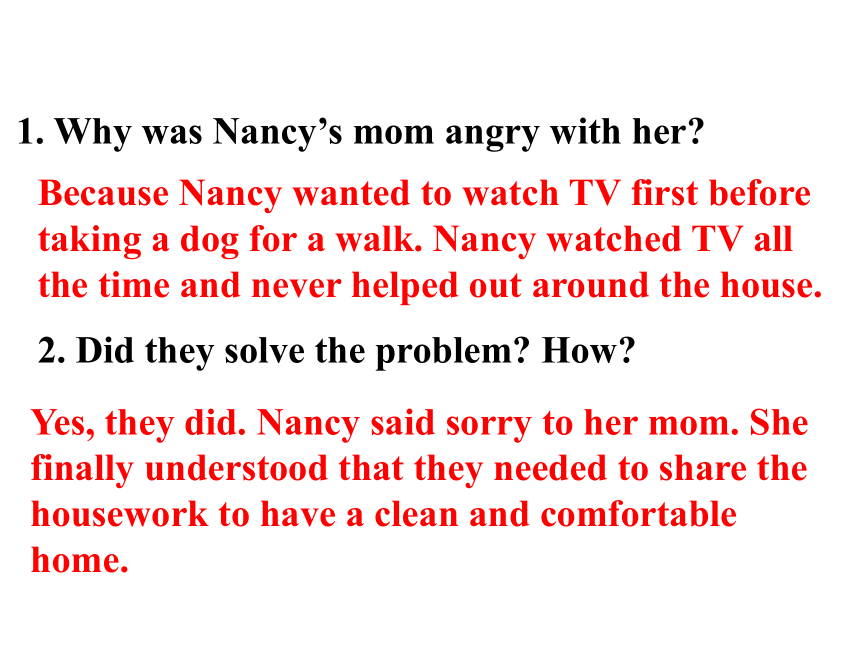
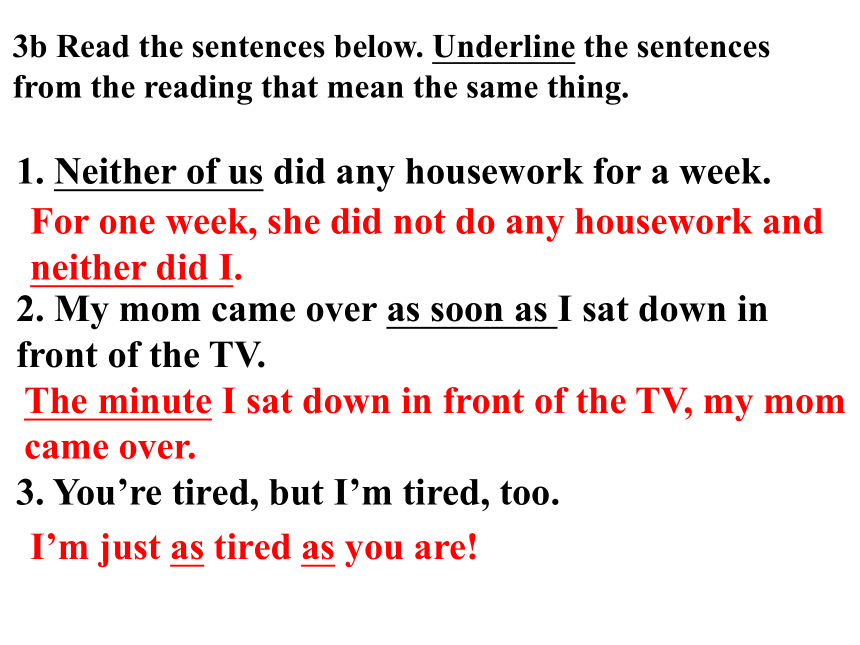
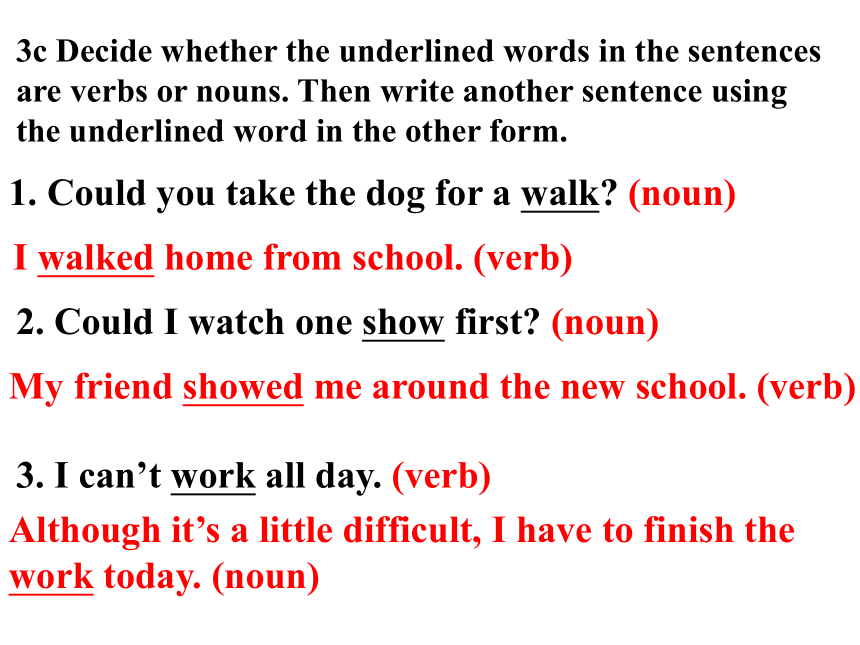
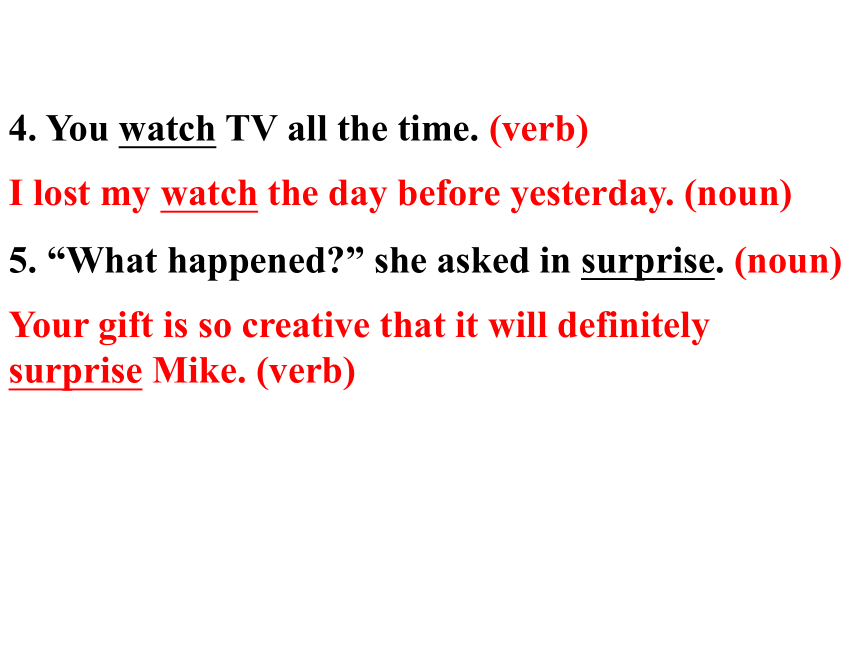

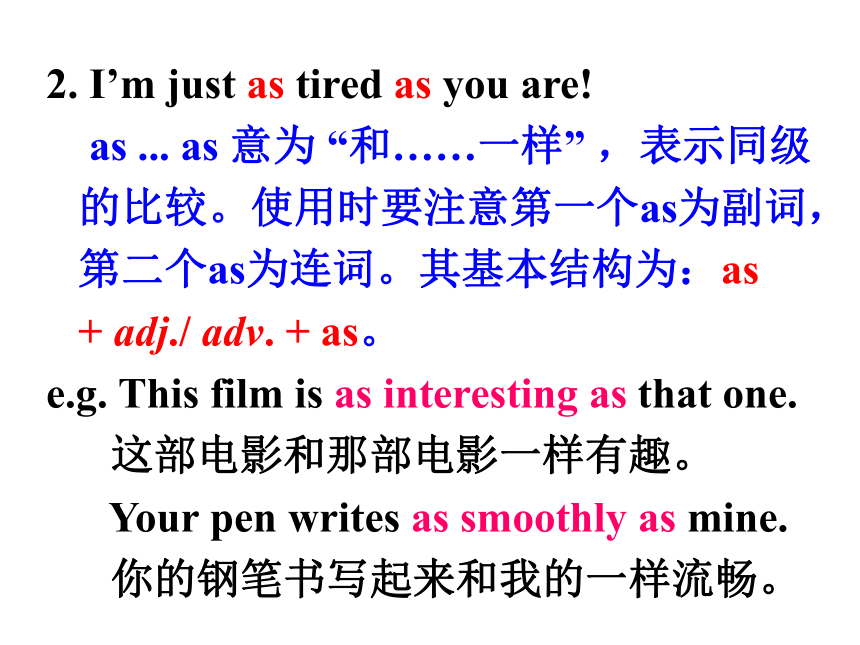
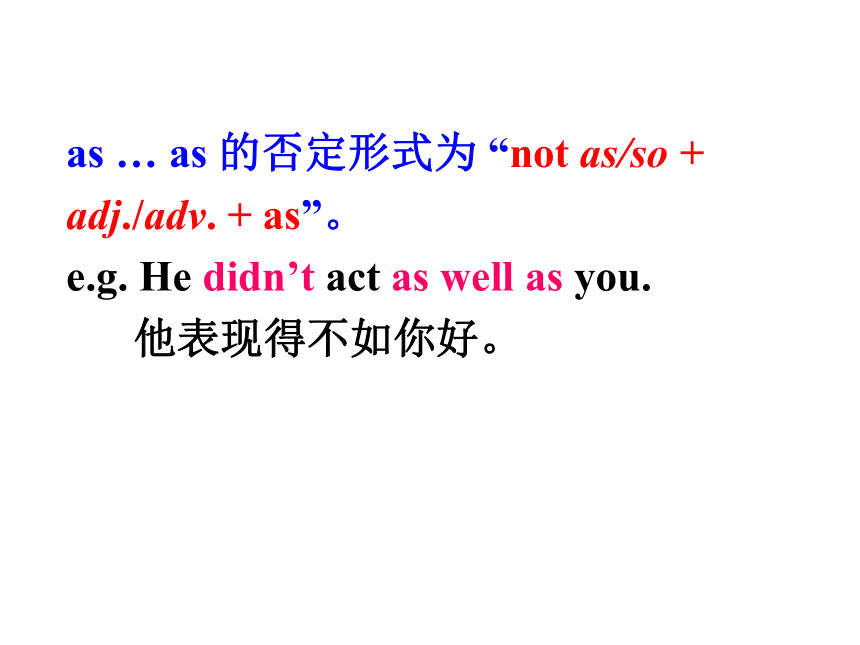
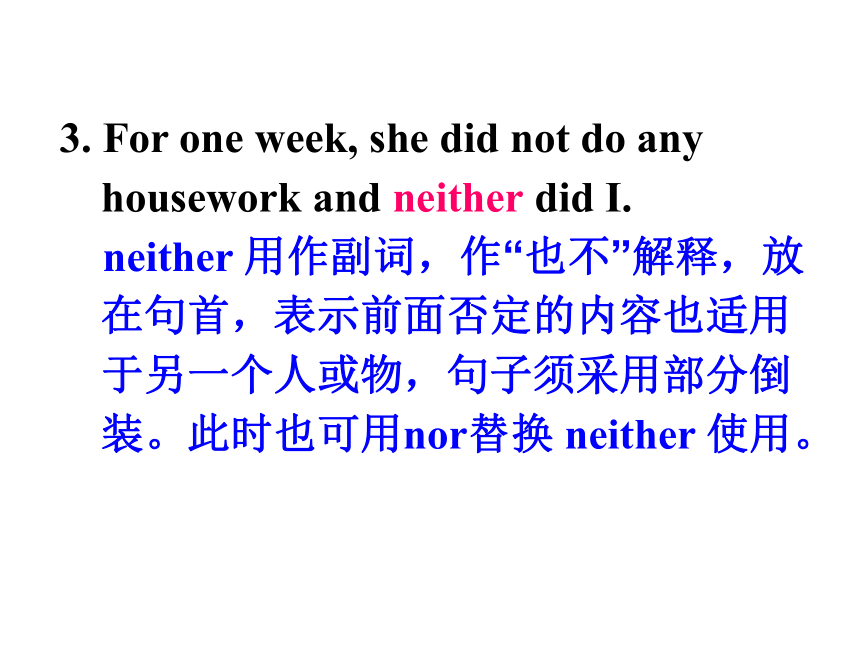
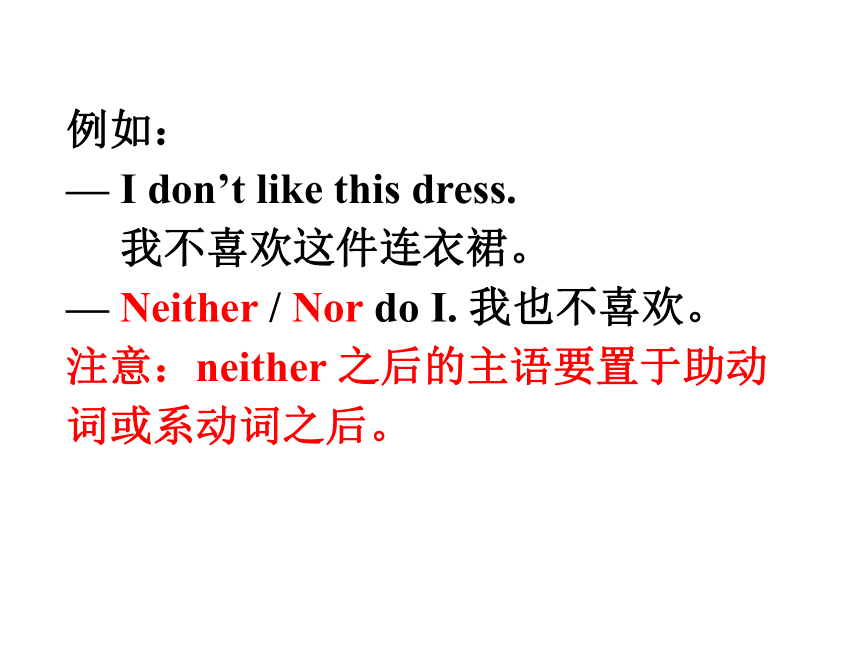
文档简介
课件33张PPT。Section A (3a-3c)UNIT 3Could you please clean your room?The Second PeriodPre-reading:1.Was the house clean, or was
it in a mess?
2.What would you do if your
house is a mess like this? 3a Read the story and answer the questions.1.Why was Nancy’s mom angry with her?
2.Did they solve the problem? How?1. Why was Nancy’s mom angry with her?2. Did they solve the problem? How?Because Nancy wanted to watch TV first before taking a dog for a walk. Nancy watched TV all the time and never helped out around the house.Yes, they did. Nancy said sorry to her mom. She finally understood that they needed to share the housework to have a clean and comfortable home. 3b Read the sentences below. Underline the sentences from the reading that mean the same thing.1. Neither of us did any housework for a week.
2. My mom came over as soon as I sat down in front of the TV.
3. You’re tired, but I’m tired, too.For one week, she did not do any housework and neither did I.The minute I sat down in front of the TV, my mom came over.I’m just as tired as you are!3c Decide whether the underlined words in the sentences are verbs or nouns. Then write another sentence using the underlined word in the other form.1. Could you take the dog for a walk? (noun)I walked home from school. (verb)2. Could I watch one show first? (noun)My friend showed me around the new school. (verb)3. I can’t work all day. (verb)Although it’s a little difficult, I have to finish the work today. (noun)4. You watch TV all the time. (verb)I lost my watch the day before yesterday. (noun)5. “What happened?” she asked in surprise. (noun)Your gift is so creative that it will definitely surprise Mike. (verb)1. You watch TV all the time and ...
all the time(在该段时间内)一直;向来, 一向;时时刻刻;每时每刻
e.g. I do this all the time.
我一直是这么做的。
This happens all the time.
这种情况是时时发生的。Language points2. I’m just as tired as you are!
as ... as 意为 “和……一样” ,表示同级的比较。使用时要注意第一个as为副词,第二个as为连词。其基本结构为:as +?adj./?adv.?+ as。
e.g. This?film?is?as?interesting?as?that?one.
这部电影和那部电影一样有趣。
Your?pen?writes?as?smoothly?as?mine.
你的钢笔书写起来和我的一样流畅。as … as 的否定形式为 “not as/so + adj./adv. + as”。
e.g. He didn’t act as well as you.
他表现得不如你好。3. For one week, she did not do any housework and neither did I.
neither 用作副词,作“也不”解释,放在句首,表示前面否定的内容也适用于另一个人或物,句子须采用部分倒装。此时也可用nor替换 neither 使用。例如:
— I?don’t?like?this?dress.?
我不喜欢这件连衣裙。
— Neither?/?Nor?do?I.?我也不喜欢。
注意:neither 之后的主语要置于助动词或系动词之后。neither 用作代词,表示“两者都不,双方均不”。例如:
He?answered?neither?of?the?letters.?
他两封信都没回。
— Which?one?would?you?like??
你喜欢哪一个?
— Neither.?
两个都不喜欢。?5 neither conj. 也不 pron. 两者都不
He isn’t coming here, neither am I .
Neither of them knows English.
1. also 是比较正式的用语,语气较庄重。它通常放在句中,位于行为动词之前,连系动词之后; 如有助动词或情态动词,一般放在助动词或情态动词之后。例如:
Peter also has two brothers.
彼得也有两个兄弟。 also, too, either, neither 的用法I am also a student. 我也是一名学生。
Mrs. Green can also sing the song in Chinese. 格林夫人也能用汉语唱这首歌。 2. too 是普通用词,多用于口语,语气较随便。一般用在肯定句中,放在句末。例如:
I’m in Row 1, too.
我也在第一排。
注意:also和too一般都用于肯定句,很
少用于否定句。 3. either 表示“也”时,一般只用于否定
句,且置于句末。例如:
I don’t know him. Tom doesn’t know
him, either.
我不认识他,汤姆也不认识他。
If you don’t go there, he won’t go
there, either.
如果你不去那儿,他也不会去那儿。
注意:either 本身没有否定的意义。所以多与 not 连用。 4. neither 表示“两个都不”,它作主语
时,谓语动词常用单数。例如:
Neither of you can do it.
你们两个都不能做这件事。Nor/neither +be/助动词/情态动词+主语
某人也不是如此So +主语+be/助动词/情态动词
某人确实如此
Betty is a nice girl. So she is .So +be/助动词/情态动词+主语
某人也是如此neither...nor... 既不...也不
eg:Neither you nor I am right. 他喜欢读书,我也是
He likes reading very much. So do I .
我从来没有去过广州大学,他也是.
I have never been to Guangzhou University, neither has he.the minute =as soon as
一.....就.....,引导时间状语从句。
这个短语用的比较常用,口语和书面语都可以。它的特点是,在句子中的位置比较灵活,而且可以用于各种时态。例如:
I’ll write you as soon as(the minute)I get there.
我一到那儿就给你来信。(一般现在时)
As soon as(the minute) I went in, Kate cried out with pleasure.
我一进门,Kate 就高兴的叫起来。(一般过去时)in surprise 吃惊地
surprise un. 惊奇;惊讶
cn.令人惊奇的事物
I looked at him in great surprise
because he changed so much.
I have a surprise for you.in front of就是指在某物的前方。
in the front of是指在某物的内部靠前的地方。
比如Sit in the front of the classroom. 指坐在教室前排的。
Sit in front of the classroom指坐在教室前面(教室外面的前面。)Explanation:1. welcome
vt.欢迎;?乐于接受
adj.受欢迎的;?令人愉悦的;?表示感谢的
n.欢迎,迎接
Please?welcome?our next contestant. (verb)
请欢迎我们的下一位竞赛选手。
You are?welcome?to come in and browse. (adjective)
欢迎您光临本店随便看看。
She opened her arms wide in an expansive gesture of?welcome. (noun)
她展开双臂以示欢迎。2. walk
vt. & vi.走;?步行;?散步;护送;遛狗等
n.步行;?步态;?人行道;?步行的路径
I?walk?my dog every evening in my neighborhood. (vt.)
我每晚在家附近的街道上遛狗。
Shall we?walk?or go by bus ? (vi.)
我们步行呢,还是坐公共汽车?
She?walked me to my car. (vt.)
她陪我走到我的车旁。
I often go for a?walk after dinner. (noun)
我经常晚餐后去散步。
It is two-mile?walk?from the school to the shopping mall. (noun)
从学校到商场有一条两英里的小径。3. The minute I sat down in front of the TV, my mom came over.
正当我坐在电视前,我妈妈就过来了。
come over 过来
Why don't you?come?over?to our place one evening?
你何不找个晚上到我们这里来坐坐?
the minute … = as soon as … 一…就…
此处相当于:
My mom came over as soon as I sat down in front of the TV.
4. reply
n.回答,答复;?反应;
v.?作答;做出反应回应,作出反应,回复
I wrote to you last week and I am waiting for your reply. (noun)
上个星期我写信给你,我正在等待你的答复。
Please reply in writing to this invitation. (verb)
请写信回复邀请。5. I’m just as tired as you are! 我和你一样累!
as…as… 与…一样
not as(so)…as… 不如…
Jack is as outgoing as me.
杰克和我一样的开朗。
Your father is as hard-working as my father.
你父亲和我父亲一样勤奋努力。
I have to finish my work as soon as possible because I have only a little time left.
我不得不尽快完成工作,因为所剩时间不多。
This room is not as/ so big as that room.
这个房间不如那个房间大。6. She did not do any housework and neither did I.
两者都不 相关搭配:neither…nor…
Neither?answer is correct. ?
两个答案都不对。
Neither?of?you?believes?one?word?that?you?are?saying.你们连自己说的一句话也不相信.
She seemed?neither?surprised nor worried. ?
她似乎既不惊讶也不担心。
I?haven't?good?eyes,?neither?have?my?children.??
我视力不好,?我的孩子们视力都不好.7. My mom came home from work to find the house clean and tidy.
to do 不定式作状语,表示结果,或没有预料到的事情和事与愿违的事情。
I awoke to find my wallet gone.
我醒来发现钱包不见了。
He searched the room only to find nothing.
他搜索了房间,没发现什么。Use the useful sentence structures to make sentences.HomeworkThank you!
it in a mess?
2.What would you do if your
house is a mess like this? 3a Read the story and answer the questions.1.Why was Nancy’s mom angry with her?
2.Did they solve the problem? How?1. Why was Nancy’s mom angry with her?2. Did they solve the problem? How?Because Nancy wanted to watch TV first before taking a dog for a walk. Nancy watched TV all the time and never helped out around the house.Yes, they did. Nancy said sorry to her mom. She finally understood that they needed to share the housework to have a clean and comfortable home. 3b Read the sentences below. Underline the sentences from the reading that mean the same thing.1. Neither of us did any housework for a week.
2. My mom came over as soon as I sat down in front of the TV.
3. You’re tired, but I’m tired, too.For one week, she did not do any housework and neither did I.The minute I sat down in front of the TV, my mom came over.I’m just as tired as you are!3c Decide whether the underlined words in the sentences are verbs or nouns. Then write another sentence using the underlined word in the other form.1. Could you take the dog for a walk? (noun)I walked home from school. (verb)2. Could I watch one show first? (noun)My friend showed me around the new school. (verb)3. I can’t work all day. (verb)Although it’s a little difficult, I have to finish the work today. (noun)4. You watch TV all the time. (verb)I lost my watch the day before yesterday. (noun)5. “What happened?” she asked in surprise. (noun)Your gift is so creative that it will definitely surprise Mike. (verb)1. You watch TV all the time and ...
all the time(在该段时间内)一直;向来, 一向;时时刻刻;每时每刻
e.g. I do this all the time.
我一直是这么做的。
This happens all the time.
这种情况是时时发生的。Language points2. I’m just as tired as you are!
as ... as 意为 “和……一样” ,表示同级的比较。使用时要注意第一个as为副词,第二个as为连词。其基本结构为:as +?adj./?adv.?+ as。
e.g. This?film?is?as?interesting?as?that?one.
这部电影和那部电影一样有趣。
Your?pen?writes?as?smoothly?as?mine.
你的钢笔书写起来和我的一样流畅。as … as 的否定形式为 “not as/so + adj./adv. + as”。
e.g. He didn’t act as well as you.
他表现得不如你好。3. For one week, she did not do any housework and neither did I.
neither 用作副词,作“也不”解释,放在句首,表示前面否定的内容也适用于另一个人或物,句子须采用部分倒装。此时也可用nor替换 neither 使用。例如:
— I?don’t?like?this?dress.?
我不喜欢这件连衣裙。
— Neither?/?Nor?do?I.?我也不喜欢。
注意:neither 之后的主语要置于助动词或系动词之后。neither 用作代词,表示“两者都不,双方均不”。例如:
He?answered?neither?of?the?letters.?
他两封信都没回。
— Which?one?would?you?like??
你喜欢哪一个?
— Neither.?
两个都不喜欢。?5 neither conj. 也不 pron. 两者都不
He isn’t coming here, neither am I .
Neither of them knows English.
1. also 是比较正式的用语,语气较庄重。它通常放在句中,位于行为动词之前,连系动词之后; 如有助动词或情态动词,一般放在助动词或情态动词之后。例如:
Peter also has two brothers.
彼得也有两个兄弟。 also, too, either, neither 的用法I am also a student. 我也是一名学生。
Mrs. Green can also sing the song in Chinese. 格林夫人也能用汉语唱这首歌。 2. too 是普通用词,多用于口语,语气较随便。一般用在肯定句中,放在句末。例如:
I’m in Row 1, too.
我也在第一排。
注意:also和too一般都用于肯定句,很
少用于否定句。 3. either 表示“也”时,一般只用于否定
句,且置于句末。例如:
I don’t know him. Tom doesn’t know
him, either.
我不认识他,汤姆也不认识他。
If you don’t go there, he won’t go
there, either.
如果你不去那儿,他也不会去那儿。
注意:either 本身没有否定的意义。所以多与 not 连用。 4. neither 表示“两个都不”,它作主语
时,谓语动词常用单数。例如:
Neither of you can do it.
你们两个都不能做这件事。Nor/neither +be/助动词/情态动词+主语
某人也不是如此So +主语+be/助动词/情态动词
某人确实如此
Betty is a nice girl. So she is .So +be/助动词/情态动词+主语
某人也是如此neither...nor... 既不...也不
eg:Neither you nor I am right. 他喜欢读书,我也是
He likes reading very much. So do I .
我从来没有去过广州大学,他也是.
I have never been to Guangzhou University, neither has he.the minute =as soon as
一.....就.....,引导时间状语从句。
这个短语用的比较常用,口语和书面语都可以。它的特点是,在句子中的位置比较灵活,而且可以用于各种时态。例如:
I’ll write you as soon as(the minute)I get there.
我一到那儿就给你来信。(一般现在时)
As soon as(the minute) I went in, Kate cried out with pleasure.
我一进门,Kate 就高兴的叫起来。(一般过去时)in surprise 吃惊地
surprise un. 惊奇;惊讶
cn.令人惊奇的事物
I looked at him in great surprise
because he changed so much.
I have a surprise for you.in front of就是指在某物的前方。
in the front of是指在某物的内部靠前的地方。
比如Sit in the front of the classroom. 指坐在教室前排的。
Sit in front of the classroom指坐在教室前面(教室外面的前面。)Explanation:1. welcome
vt.欢迎;?乐于接受
adj.受欢迎的;?令人愉悦的;?表示感谢的
n.欢迎,迎接
Please?welcome?our next contestant. (verb)
请欢迎我们的下一位竞赛选手。
You are?welcome?to come in and browse. (adjective)
欢迎您光临本店随便看看。
She opened her arms wide in an expansive gesture of?welcome. (noun)
她展开双臂以示欢迎。2. walk
vt. & vi.走;?步行;?散步;护送;遛狗等
n.步行;?步态;?人行道;?步行的路径
I?walk?my dog every evening in my neighborhood. (vt.)
我每晚在家附近的街道上遛狗。
Shall we?walk?or go by bus ? (vi.)
我们步行呢,还是坐公共汽车?
She?walked me to my car. (vt.)
她陪我走到我的车旁。
I often go for a?walk after dinner. (noun)
我经常晚餐后去散步。
It is two-mile?walk?from the school to the shopping mall. (noun)
从学校到商场有一条两英里的小径。3. The minute I sat down in front of the TV, my mom came over.
正当我坐在电视前,我妈妈就过来了。
come over 过来
Why don't you?come?over?to our place one evening?
你何不找个晚上到我们这里来坐坐?
the minute … = as soon as … 一…就…
此处相当于:
My mom came over as soon as I sat down in front of the TV.
4. reply
n.回答,答复;?反应;
v.?作答;做出反应回应,作出反应,回复
I wrote to you last week and I am waiting for your reply. (noun)
上个星期我写信给你,我正在等待你的答复。
Please reply in writing to this invitation. (verb)
请写信回复邀请。5. I’m just as tired as you are! 我和你一样累!
as…as… 与…一样
not as(so)…as… 不如…
Jack is as outgoing as me.
杰克和我一样的开朗。
Your father is as hard-working as my father.
你父亲和我父亲一样勤奋努力。
I have to finish my work as soon as possible because I have only a little time left.
我不得不尽快完成工作,因为所剩时间不多。
This room is not as/ so big as that room.
这个房间不如那个房间大。6. She did not do any housework and neither did I.
两者都不 相关搭配:neither…nor…
Neither?answer is correct. ?
两个答案都不对。
Neither?of?you?believes?one?word?that?you?are?saying.你们连自己说的一句话也不相信.
She seemed?neither?surprised nor worried. ?
她似乎既不惊讶也不担心。
I?haven't?good?eyes,?neither?have?my?children.??
我视力不好,?我的孩子们视力都不好.7. My mom came home from work to find the house clean and tidy.
to do 不定式作状语,表示结果,或没有预料到的事情和事与愿违的事情。
I awoke to find my wallet gone.
我醒来发现钱包不见了。
He searched the room only to find nothing.
他搜索了房间,没发现什么。Use the useful sentence structures to make sentences.HomeworkThank you!
同课章节目录
- Unit 1 What's the matter?
- Section A
- Section B
- Unit 2 I'll help to clean up the city parks.
- Section A
- Section B
- Unit 3 Could you please clean your room?
- Section A
- Section B
- Unit 4 Why don't you talk to your parents?
- Section A
- Section B
- Unit 5 What were you doing when the rainstorm came
- Section A
- Section B
- Review of Units 1-5
- Unit 6 An old man tried to move the mountains.
- Section A
- Section B
- Unit 7 What's the highest mountain in the world?
- Section A
- Section B
- Unit 8 Have you read Treasure Island yet?
- Section A
- Section B
- Unit 9 Have you ever been to a museum?
- Section A
- Section B
- Unit 10 I've had this bike for three years.
- Section A
- Section B
